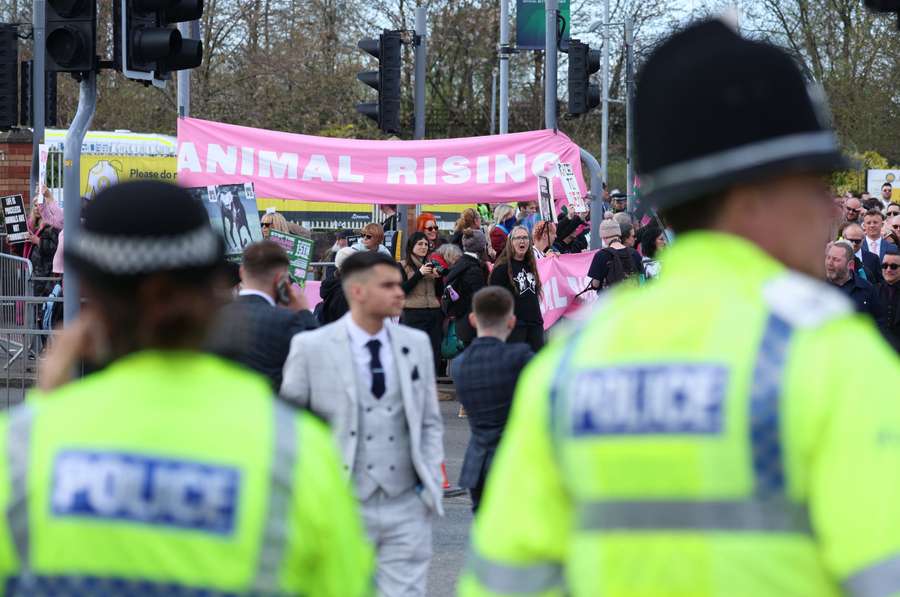Trainer blames Grand National protesters for horse's death

The start at Aintree was delayed by 14 minutes after protesters forced their way into the grounds. Police arrested 118 people.
Animal rights groups say the race, one of Britain's highest-profile sporting events, exploits animals for entertainment.
Three horses died over the three days this year after four fatalities in 2022.
Sandy Thomson, whose horse Hill Sixteen was put down after falling at the first fence, told Sky Sports the protest was "nothing about horse welfare.
"They were only there to get themselves on telly and they've done that," he said.
"The figures show that since the fences were realigned nine years ago that there's an average of two fallers at the first and second fence every year," said Thomson. "This year there were eight.
"Hill Sixteen has jumped these fences, he's jumped about 50 of these fences. There was no reason for him to misjudge that first fence as badly as he did.
"As far as I'm concerned it was all down to everybody getting unsettled - horses, jockeys, starters, officials - because of these so-called animal rights people."
A spokesperson for Animal Rising said the action was taken to stop horses dying and highlight a "broken relationship" with animals.
"The real reason the horse was running the race was so that people could bet on the horse, the jockeys could make money and so people could have a fun day out, and that doesn't seem like a good enough reason to put an animal in harm's way," Ben Newman told the BBC.
The RSPCA animal charity urged the British Horseracing Authority to review the size of the field and how the deaths happened "so that we never again exit a ‘festival of racing’ with three dead horses."



